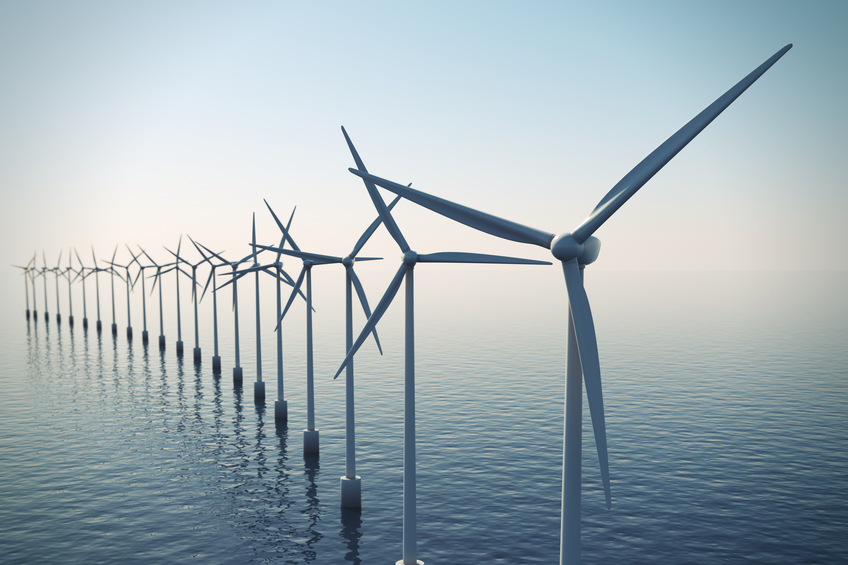Saskatchewan Alt/Ren Energy 30 PDH Discount Package
Courses in this Package
Design and Sizing of Solar Photovoltaic Systems (R08-002)
Future Energy Sources (M03-047)
Biodiesel Handing and Use Guide (R04-008)
Wind Turbine Technology (R04-009)
Advancing Clean Electric Power Technologies: Solar Power (R02-016)
Novel Technologies for Bulk Energy Storage (R05-001)
Residential Solar PV Energy Guide (R03-015)
General Principals of Engineering Ethics for Saskatchewan Professional Engineers (SK1-001)

This online engineering PDH course presents the fundamental principles behind the workings of a solar PV system, use of different components in a system, methodology of sizing these components and how these can be applied to building integrated systems. It includes detailed technical information and basic step-by-step methodology for design and sizing of off-grid solar PV systems.
The sun delivers its energy in two main forms: heat and light. There are two main types of solar power systems, namely, solar thermal systems that trap heat to warm up water and solar PV systems that convert sunlight directly into electricity (the latter being the focus of this course). Direct or diffuse light (usually sunlight) shining on the solar cells induces the photovoltaic effect, generating DC electric power. This DC power can be used, stored in a battery system, or fed into an inverter that converts DC into alternating current “AC”, so that it can feed into one of the building’s AC distribution boards (“ACDB”) without affecting the quality of power supply.
Several factors and aspects are taken into consideration when designing a solar PV system which will be discussed in this course.
This 8 PDH online course is applicable to electrical & mechanical engineers, energy & environment professionals, architects & structural engineers, and other professionals looking to enter the solar industry, or interact with solar projects in their current line of work.
This P.Eng. continuing education course is intended to provide you with the following specific knowledge and skills:
- Learning about the basics of PV technology
- Familiarizing with performance aspects of PV modules
- Gaining an overview of the different types of PV system configurations
- Learning about the role of inverters in PV systems
- Familiarizing with charge controllers
- Learning about the different types of batteries, their associated classifications, and key definitions
- Understanding the importance of having balanced systems
- Designing and sizing of PV systems
- Familiarizing with building integrated PV systems
Upon successful completion of the quiz, print your Certificate of Completion instantly. (Note: if you are paying by check or money order, you will be able to print it after we receive your payment.) For your convenience, we will also email it to you. Please note that you can log in to your account at any time to access and print your Certificate of Completion.

This online engineering PDH course describes the state-of-the art, cutting edge efforts by scientists and engineers in the United States who are involved with research to continue to find alternate energy sources for the future. These energy sources will be of vital importance to sustaining and improving the quality of life on planet earth and beyond. This course explains how the U.S. Department of Energy (DOE) leads the world in the conception, design, construction, and operation of these large-scale devices. It also discusses that these machines have enabled U.S. researchers to make some of history's important scientific discoveries, with spin-off technological advances leading to entirely new industries.
Throughout its history, the Department of Energy's Office of Science has designed, constructed, and operated many of the Nation's most advanced, large-scale research and development user facilities, of importance to all areas of science. These state-of-the-art facilities are shared with the science community worldwide and contain technologies and instrumentation that are available nowhere else. As the steward of America's national laboratories, the Department of Energy has a special responsibility to plan for and propose Office of Science investments for the future that will serve to advance the national, energy, and economic security of the United States.
This 3 PDH online course is intended for engineers who are interested in current and future state-of-the art energy sources that will provide good stewardship of America's limited energy sources.
This P.Eng. continuing education course is intended to provide you with the following specific knowledge and skills:
- Energy Sciences Network (ESnet)
- National Energy Research Scientific Computing (NERSC) Center
- National Synchrotron Light Source (NSLS)
- Advanced Light Source (ALS)
- Advanced Photon Source (APS)
- High Flux Isotope Reactor (HFIR) Center for Neutron Scattering
Upon successful completion of the quiz, print your Certificate of Completion instantly. (Note: if you are paying by check or money order, you will be able to print it after we receive your payment.) For your convenience, we will also email it to you. Please note that you can log in to your account at any time to access and print your Certificate of Completion.

This online engineering PDH course provides an overview of biodiesel blends, the advantages of using biodiesel, precautions for use of biodiesel during cold weather, and the proper procedures for handling and use of biodiesel. This course also provides detailed information on biodiesel testing requirements and compatibility issues.
Biodiesel is a diesel replacement fuel for use in diesel engines. It is manufactured from plant oils, animal fats, and recycled cooking oils, is most commonly used as a blend with petroleum diesel in compression-ignition engines. Some of the advantages of Biodiesel are that it is renewable, can reduce greenhouse gases, compatible with new technology diesel engines, nontoxic, biodegradable, and suitable for sensitive environments.
This 4 PDH online course is intended primarily for energy, chemical, environmental, mechanical, civil and industrial engineers. Someone completing this course will gain knowledge about the use and handling of biodiesel.
This P.Eng. continuing education course is intended to provide you with the following specific knowledge and skills:
- Understanding the sources and processing of biodiesel
- Learning about the benefits and attributes of biodiesel
- Familiarizing with Physical properties of biodiesel as compared to No. 2 diesel
- Understanding the ASTM D6751 standards for biodiesel quality
- Learning about the material compatibility issues for biodiesel
- Learning about the cold-weather issues for biodiesel
- Understanding how to properly blend, store, and transport biodiesel
- Learning about the engine and equipment warranties involved with biodiesel use
- Learning about the taxes and incentives for biodiesel
- Familiarizing with basic safety, health, and environmental issues for biodiesel
- Understanding the fire safety and firefighting considerations
Upon successful completion of the quiz, print your Certificate of Completion instantly. (Note: if you are paying by check or money order, you will be able to print it after we receive your payment.) For your convenience, we will also email it to you. Please note that you can log in to your account at any time to access and print your Certificate of Completion.

This online engineering PDH course provides a brief overview of wind turbine technology and its associated components, discusses the financial considerations and the technological improvements that would be required to increase the reliance on wind energy in the future.
Current turbine technology has enabled wind energy to become a viable power source in today’s energy market. Advancements in turbine technology that have the potential to increase wind energy’s presence are currently being explored through areas of study including reducing capital costs, increasing capacity factors, and mitigating risk through enhanced system reliability.
This 4 PDH online course is intended for renewable, sustainability, mechanical, electrical, and industrial engineers, as well as other technical personnel who are interested in gaining a basic understanding of wind turbine technology.
This P.Eng. continuing education course is intended to provide you with the following specific knowledge and skills:
- Familiarizing with the basic configuration of the modern wind turbine
- Knowing the options in improving wind turbine technology
- Understanding the technical and financial risks involved in wind technology
- Familiarizing with offshore wind technology
- Learning about distributed wind technology (DWT) and their applications
Upon successful completion of the quiz, print your Certificate of Completion instantly. (Note: if you are paying by check or money order, you will be able to print it after we receive your payment.) For your convenience, we will also email it to you. Please note that you can log in to your account at any time to access and print your Certificate of Completion.

This online PDH course briefly discusses the solar market and solar energy’s technical and resource potential. Also, it addresses R&D strategy and priorities, the development and status of solar technologies and markets, projected solar deployment and impacts, and solutions for high-penetration of renewable energy into the electricity grid.
Solar energy offers a number of strategic benefits to the United States. Replacing fossil-fuel combustion with solar energy reduces emissions of human-induced greenhouse gases and air pollutants.
Despite these benefits, solar energy currently supplies only a small fraction of U.S. energy needs, largely because it historically has cost more than conventional energy sources. However, solar manufacturing costs and sales prices have dropped dramatically over the past few decades, and solar technologies are approaching energy-price parity with conventional generating sources in some regions of the United States and abroad.
This 2 PDH online course is intended for mechanical, electrical and renewable energy engineers as well as others interested in learning more about the current solar market and solar energy’s technical and resource potential.
This P.Eng. continuing education course is intended to provide you with the following specific knowledge and skills:
- Familiarization with the solar market and solar energy’s technical and resource potential
- Familiarizing with R&D strategy and priorities
- Understanding the development and status of solar technologies and markets
- Understanding the nature of projected solar deployment and their impact on the U.S. electricity markets
Upon successful completion of the quiz, print your Certificate of Completion instantly. (Note: if you are paying by check or money order, you will be able to print it after we receive your payment.) For your convenience, we will also email it to you. Please note that you can log in to your account at any time to access and print your Certificate of Completion.

This online engineering PDH course provides a brief description of conventional compressed air energy storage (CAES) and pumped storage hydropower (PSH) technologies including their current status as well as an overview of the general limitations of each technology. It also introduces eight new PSH and nine new CAES technologies. The “newness” of the technologies ranges from technologies that are new to the United States (but present in a foreign country) to technologies that are futuristic (in very early stages of development). The business characteristics, electric grid characteristics, suitable applications, and feasibility of each of the novel technologies are described. Finally, it identifies the technological gaps and barriers to commercialization, outlines future research and development needs, and recommends a focus for future efforts.
If renewable energy resources are to reduce our reliance on fossil-fuel power-plants for generating electricity, some means of storing large amounts of energy must be developed to generate electricity during times when the renewable energy resources are not available, for example, when the sun does not shine or the wind does not blow. Two common types of bulk energy storage are compressed air energy storage (CAES) and pumped storage hydropower (PSH).
This 5 PDH online course is intended for electrical, mechanical, and civil engineers concerned about the development and feasibility of increasing the use of renewable energy resources for electricity generation.
This P.Eng. continuing education course is intended to provide you with the following specific knowledge and skills:
- Understanding the status and limitations of conventional PSH technology
- Understanding the status and limitations of conventional CAES technology
- Learning about permitting issues related to bulk storage systems
- Learning about the methodology for choosing bulk energy storage applications
- Knowing the applications recommended for bulk storage
- Learning about the eight novel PSH technologies
- Learning about the nine novel CAES technologies
- Knowing the PSH gaps, barriers and R&D needed
- Knowing the CAES gaps, barriers, and R&D needed
In this professional engineering CEU course, you need to review the course document titled, “Novel Technologies for Bulk Energy Storage” which is based on the Sandia Report, SAND2011-3700, "Characterization and Assessment of Novel Bulk Storage Technologies” by Poonum Agrawal, et al., May, 2011.
Upon successful completion of the quiz, print your Certificate of Completion instantly. (Note: if you are paying by check or money order, you will be able to print it after we receive your payment.) For your convenience, we will also email it to you. Please note that you can log in to your account at any time to access and print your Certificate of Completion.

This online engineering PDH course provides information on solar photovoltaic (PV) technology, and presents a series of steps that will help you reach a well-informed conclusion about making an investment in solar energy systems.
Solar PV technology is the process that converts sunlight into electrical current when it strikes suitable materials called semiconductors in a device. Sunlight is absorbed by semiconducting materials, such as silicon, releasing electrons from their atoms. The electrons flow through the semiconductor to produce direct current (DC) electricity.
The technologies associated with the building blocks of a solar array project may seem complicated; however, the system design and construction are relatively simple and straightforward. Familiarity with the design and construction procedures is beneficial in becoming a more educated consumer and owner.
This 3 PDH online course is applicable to electrical and mechanical engineers as well as energy specialists who are interested in expanding their knowledge on solar PV technology and understanding the detailed considerations for installing similar systems for generating electricity.
This P.Eng. continuing education course is intended to provide you with the following specific knowledge and skills:
- Familiarizing with the building blocks of solar PV systems
- Understanding the preliminary research process prior to designing a system or purchasing its components
- Learning about site assessment and determining the ideal conditions for the solar array
- Understanding the different considerations for roof and ground-mounted systems
- Learning how to formulate solar array designs, calculations and sizing requirements
- Identifying the significant components of a solar array as part of the equipment selection process
- Gaining a general overview of contracts, installation, maintenance and monitoring of solar energy systems
Upon successful completion of the quiz, print your Certificate of Completion instantly. (Note: if you are paying by check or money order, you will be able to print it after we receive your payment.) For your convenience, we will also email it to you. Please note that you can log in to your account at any time to access and print your Certificate of Completion.

This online engineering PDH ethics course is (1) the study of moral issues and decisions confronting individuals and organizations involved in engineering and (2) the study of related questions about moral conduct, character, ideals and relationships of peoples and organizations involved in technological development (Martin and Schinzinger, Ethics in Engineering).
This course will address the principles of engineering ethics that every engineer is expected to live by when practicing their profession. It will also present unique ethical case studies randomly selected to demonstrate ethical challenges for professional engineers and alternatives to address these challenges.
This 1 PDH online course is applicable to Professional Engineers licensed in the Province of Saskatchewan and who are required to demonstrate continuing professional competency in engineering ethics as a condition of their license renewal. For each renewal period, every licensee must complete at least one (1) professional development hour relative to the principals of professional responsibility, conduct and ethics.
This P.Eng. continuing education course is intended to provide you with the following specific knowledge and skills:
- Understanding the definition of engineering ethics
- Learning how to hold the utmost safety, health, and welfare of the public when practicing your profession
- Familiarizing with the conditions to issue public statements
- Gaining a general overview on how to represent each employer or client as a faithful trustee
- Learning how to build your professional reputation on the merit of your services
- Understanding professional ethical practices through presenting realistic case studies
- Learning how to handle proprietary information and intellectual property rights
Upon successful completion of the quiz, print your Certificate of Completion instantly. (Note: if you are paying by check or money order, you will be able to print it after we receive your payment.) For your convenience, we will also email it to you. Please note that you can log in to your account at any time to access and print your Certificate of Completion.